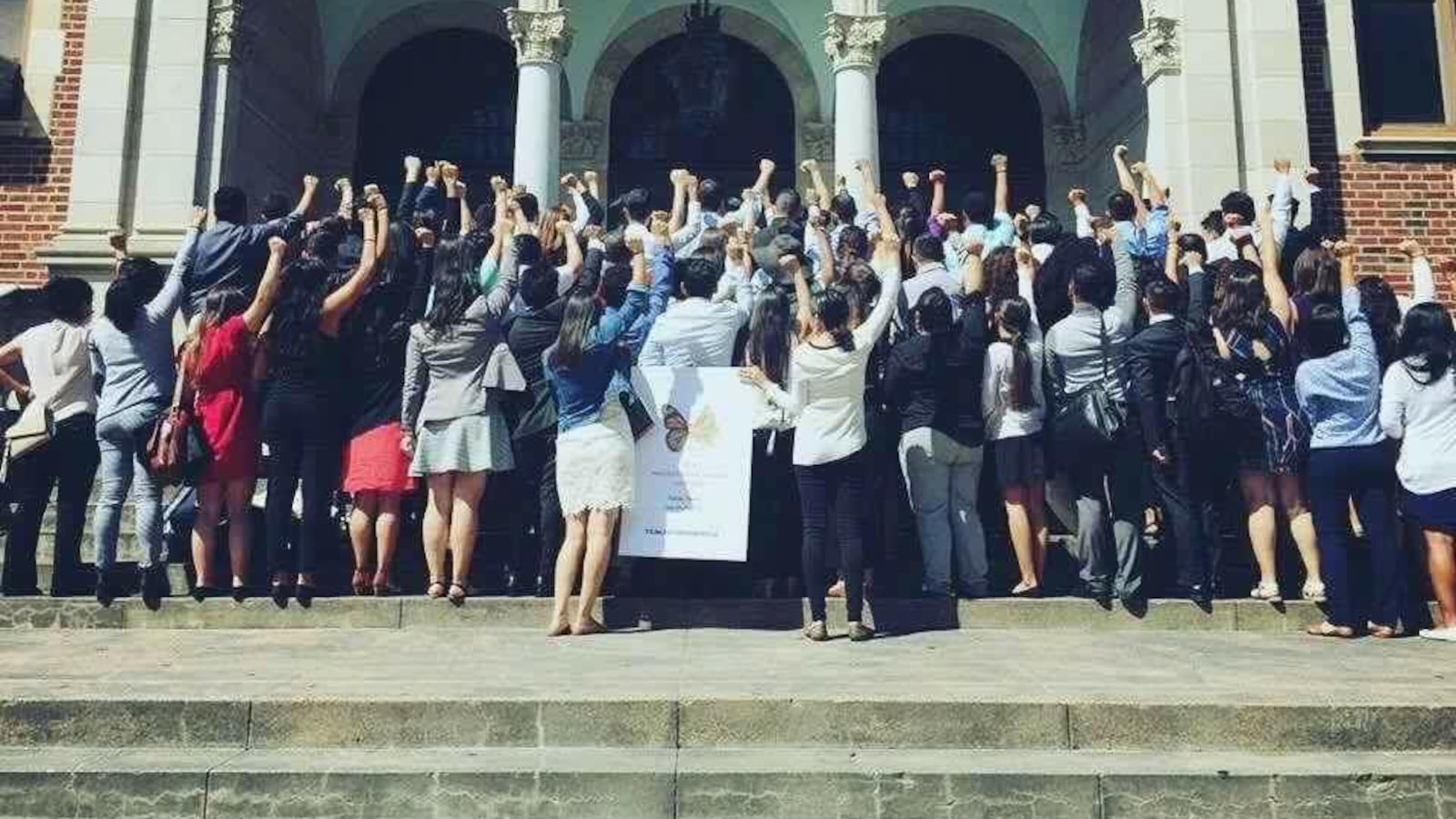Among the many people in America reeling from today’s presidential election results: The 146 Teach For America teachers who work in classrooms across the country but are not documented citizens.
Teach For America deliberately created this corps over the last three years — the work largely of one woman, Viridiana Carrizales, whose day today became a worst-case scenario she’d first charted over the summer.
Like many Americans across the political spectrum, Carrizales did not expect Donald Trump to become president. And like many immigrants, she hoped that he would not. But months ago, she began planning for what Teach For America — the national organization that recruits and trains teachers for schools serving poor students — could do if he did.
Her plan, which she expects to introduce to corps members this week, outlines responses to Trump’s vow to immediately end DACA, the Obama administration program that allows young adults who came to this country illegally as children to temporarily live and work without fear of deportation. Efforts could include helping Teach For America teachers relocate to be closer to their families and working with school districts to navigate tricky immigration waters, she said.
“I was hoping never to use this plan, but I knew we had to prepare,” Carrizales said. “I’m so glad that we did. Back in the summer I had a little bit of a clearer mind.”
Teach For America first got involved in immigration policy in 2012, when the organization lobbied for the DREAM Act, which would have created a path toward citizenship for people who came to the country illegally as children.
That bill failed, leaving Teach For America’s leadership and members deeply disappointed. “We knew that all children meant all children,” Carrizales said — and the group could not achieve its mission of helping every student succeed if large numbers of immigrant students could never go to college.
So when DACA became an option in 2014, Teach For America quickly lined up resources to help aspiring teachers go through the onerous and expensive approval process. The DACAmented corps went from two teachers in Denver to 146 across the country today, from 37 different nations.
Their status is weighing heavily on Teach For America’s top executive, Elisa Villanueva Beard. “When the executive order came for DACA for the first time, they walked the streets with their heads up and not hiding in the shadows,” she said. “And now with this, it’s a question. We don’t know what’s going to happen. But they’re terrified for their lives and for their families and for their security.”
Like the majority of Teach For America teachers, DACAmented members have undocumented students in their classes. They discuss the issues that they share in a private Facebook group and, once a year, when they all come together in person. And this past summer, the group members taught more than 3,000 new teachers about the challenges facing undocumented students.
Those are issues that Carrizales knows well — she came with her family from Mexico illegally herself, when she was 12. After graduating from college in 2010, she considered joining Teach For America before realizing she would not be able to work legally. Instead, she spent three years working as a babysitter and doing odd jobs before marrying a U.S. citizen.
Now, she is safe from changes to immigration policy. But she has family members who remain in the country illegally, and she worries about the 146 DACAmented teachers and their families as well.
Late Tuesday, DACAmented’s Facebook group buzzed as members shared their sadness and fear. One reported crying from the floor of Democrat Hillary Clinton’s election party in New York City.
“Many of them decided not to go to school because they didn’t know what to tell their kids today,” Carrizales said. “So many of them just had no more strength.”
But she said she also heard from one teacher who forced herself to go to school because she worried that her students’ fears might be stronger than her own. And on Facebook, DACAmented teachers laid bare the resilience that Teach For America famously values.
“I am so hurt by this election,” one teacher wrote. “But I know we will come through this stronger. We have to, we have to.”


